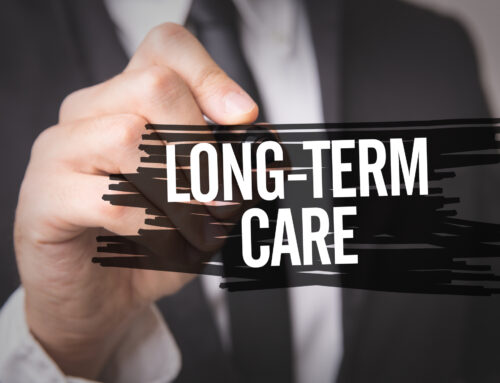
If you’re in your 50’s, 60’s, or 70’s, you probably watched your parents age and maybe took on caregiving responsibilities. In fact, about 34 million U.S. adults provide unpaid care to an adult over the age of 50, usually a parent.[1] Whether you’re working full-time, part-time, or are retired, this can be time consuming and straining. And while we all want to do what’s best for our aging loved ones, it’s important to take care of our own needs as well. It’s the season to give, as well as receive thanks, so if you’re a caregiver, don’t forget to take care of yourself.
Consider Your Time
Caregivers give up valuable time to help out loved ones, which is often necessary and certainly admirable. But, it can become an unmanageable burden on full-time and part-time workers. It can also be hard on retirees who want to use their time to volunteer, maintain relationships, and travel. It can help to sit down and calculate how much time each week or month you spend caregiving. Knowing this number can help you find ways to be more efficient. It can also help you decide when transfer some responsibilities to paid caregivers if you’re spending too much time.
Consider Your Career
If you’re still working, balancing a career with caregiving responsibilities can be very difficult. In fact, 70% of working caregivers suffer work-related difficulties due to their dual roles.[2] Many people may feel pressured to cut back on their workload to take care of a family member or give up their career entirely. And while the right choice depends on the individual, leaving the workforce prematurely can have major financial implications.
Consider Your Future-Self
Covering long-term care costs can be difficult, as you might see with elderly family members. And because life expectancies are increasing, it’s even more likely that you will need long-term care than your parents. In fact, according to government estimates, someone turning 65 today has an almost 70% chance of needing long-term care.[3] The good news is that there are new ways of covering long-term care costs other than expensive long-term care insurance policies or paying out of pocket.
If you’re concerned about how your parents will cover long-term care costs, and how you will cover your own costs later in life, the professionals at Epstein & White can help. Don’t forget your own needs when taking care of a loved one, or put off planning for your future. We offer no cost, no obligation financial reviews so that we can hear about your retirement goals and obstacles. To get started on creating a plan, sign up for a complimentary financial review.
[1] https://www.caregiving.org/wp-content/uploads/2015/05/2015_CaregivingintheUS_Executive-Summary-June-4_WEB.pdf
[2] https://www.caregiver.org/caregiver-statistics-work-and-caregiving
[3] https://longtermcare.acl.gov/the-basics/how-much-care-will-you-need.html




